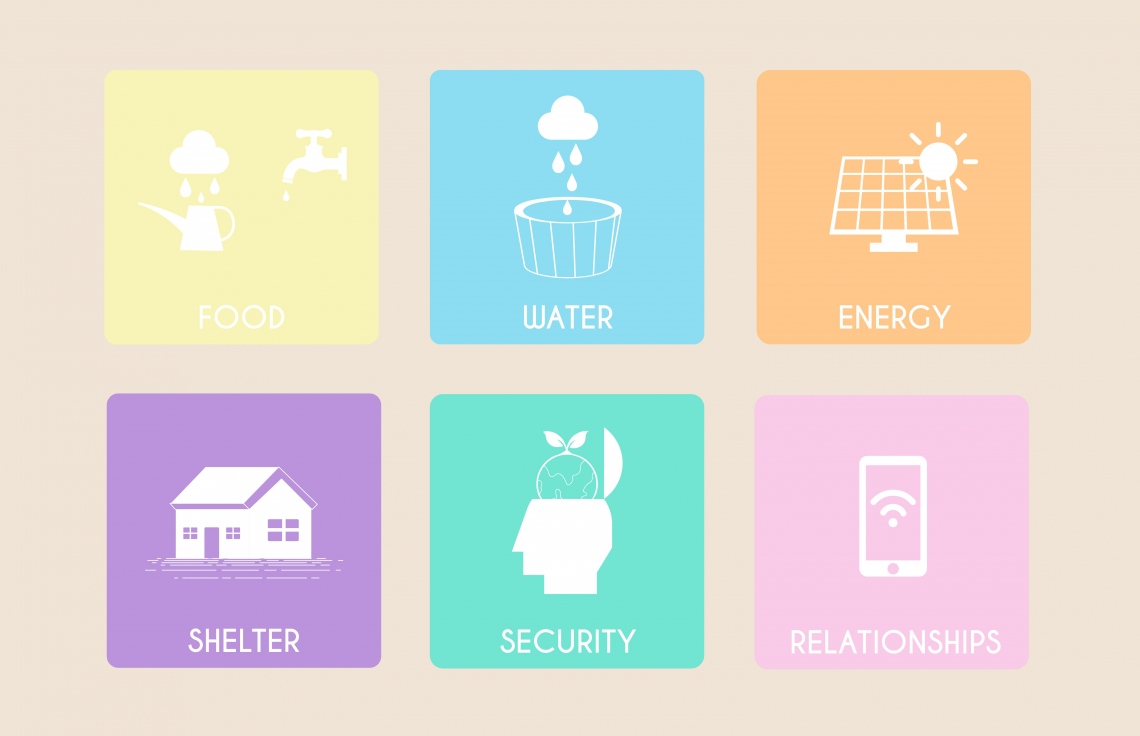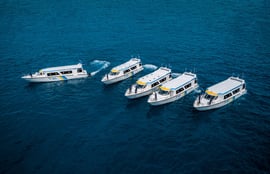Continued from Part I...
As the banshee screams...
Environmentalists, planetarians, ocean advocates, eco warriors - they’ve been singing this song for a long time now.
“It’s high time the Maldives declared a state of climate emergency and act accordingly'', stated Vice President of Maldivian Red Crescent and Sustainable Development Consultant Aisha Niyaz. Environment advocate Adam Ashraf echoes her sentiment, “I fully support this”.
Early September the warning bells extended to the Parliament, with Hoarafushi MP Ahmed Saleem presenting a resolution that calls for the world's attention on the global climate crisis, and expressed concerns over the government’s lack of action.
However, there are those in the Maldives that argue that the issue of climate change has become overly politicized. Yet despite notoriously being at odds on just about everything - all major political factions wholeheartedly agree the country needs to play a bigger role in creating awareness and generating positive action.
The fight began early on, with President Maumoon Abdul Gayoom making a stand at the Vancouver Commonwealth Heads of Government Meeting and the UN General Assembly in 1987.
Former President Abdulla Yameen Abdul Gayoom, in 2015, signed off on the Maldives’ Climate Change Policy Framework with the statement, “Swift, continual and well thought out action needs to be undertaken to effectively and cohesively address climate change issues, both at an international level and national level”.
Nearly a decade after Former President Mohamed Nasheed submerged his entire cabinet in 2009 to raise awareness, he delivered passionate words at COP24, pleading, “We are just only saying: please do not kill us”.
Considering the above, the issue of climate change seems less about politics and as Foreign Minister Abdulla Shahid puts it, “an existential threat”. Speaking at the UN Security Council Debate held in January, he said, “On 17th April 2007, when the Security Council held its first ever debate on the impact of climate change on peace and security, I spoke in this very room, on this very same matter.”
“And yet today, in this council, 12 years later, I’m still repeating the same message. Prospects for this nation are far worse than we ever imagined.”
Indeed, the Maldives has been voicing concerns over a quarter century, but perhaps the hollowness with which it falls on disinterested ears, has to do with a certain unwillingness to really grasp the message and follow the nation’s own advice.
Meanwhile this May, the United Kingdom became the first national government to declare a climate emergency. In June, CNN reported that officials from New York City, the largest city in the US with a population of 8.62 million, declared a climate emergency in an effort to mobilize local and national responses to stall global warming.
The Climate Mobilization organization states that to date, over 955 local governments in 18 countries have declared a climate emergency and committed to action to drive down emissions at emergency speed. Unfortunately, despite all the country has done to raise awareness on the issue of climate change, the Maldives is yet to climb on this bandwagon.
So why hasn’t this materialised?
A number of Maldivians hold the opinion government attitudes on the matter are slack. An invitation circulating on Maldivian social channels under the hashtag “ClimateStrikeMV” reads, “Our world is on fire. Sea levels are rising. Our government has failed to hear this message”.
Again, although leaders have spoken up on global platforms, most of the plans put in motion are seen as “token gestures”. Reclamation of land continues exasperating already stressed marine ecosystems, waste management is barely existent - moreover, adequate amounts of energy and finances have not been spent on innovative new adaptive measures.
“I think the reason why Maldives hasn’t yet declared a climate emergency is because our leaders are afraid of potential impacts on tourism,” offered Hassan Ahmed (Beybe), President of long-standing local environment NGO Save The Beach Maldives.
“The thing is,'' he offered, “it doesn’t have to be a negative. Today, acknowledging these issues can be regarded as a very positive step; everybody in the world now knows climate change is happening. We can’t just ignore it - this is reality”.
Considering that tourism is at the heart of the Maldivian economy, adding up to nearly a third of the GDP, it is a fair assumption. The 2004 Tsunami, and 2008’s State of Emergency left hoteliers and other hospitality service providers rattled, as did the aftermath of coral bleaching events.
This results in a hesitancy to rock the boat, even if it means getting nowhere. Environment experts working in consultation with the government and the hotel industry confirm that it is not simply that the state of the country has been downplayed, but much remains undisclosed to avoid “scaring off the tourists”.
Beybe, also the owner and manager of Nu Vilu Dive Centre, Lhaviyani Atoll, reasoned, “We could leverage the situation to our advantage. For example, we communicate that through our green tax, every person visiting the Maldives would contribute towards the country’s efforts to adapt and negating travel emissions and other impacts brought on by their own countries.”
A similar view is expressed in an editorial written by international entrepreneur Sonu Shivsadani, Founder and CEO of Soneva Group, which states, “If the country decides to ban single-use plastic bottles, it will create global headlines and generate considerable positive PR for the Maldives. For the hotel and resort industry, it will be fantastic, as it will generate international goodwill towards the country, and result in an increase in tourism.”
Having spent 24 years thriving in the highly competitive Maldivian resort industry, with a resort that attracts celebrity clientele year-round, it is safe to say Sonu knows what he is talking about. In an exclusive interview to The Edition, he iterates, “We’ve proven that what is good for the planet is good for business”.
According to the Ministry of Tourism, the industry is thriving, with arrivals up by 15% during 2019’s first quarter. However, if things remain as is and beaches continue to be dumped on and eroding, it seems that the only thing stretching out towards this cerulean horizon will be dunes of denial.
All over the world, everywhere
On the subject of refute, there are those that still claim global warming and climate change are a myth. This was best showcased by young Swedish climate advocate Greta Thunberg in her interview to the Washington Post where she said, “[In the US] it’s like they even doubt facts. It’s like something you believe in, instead of being facts.”
However this state of happy oblivion isn’t restricted to the states, as Greta herself admits - it’s everywhere. With countries closer to the crisis still in abeyance, it would presumably be that much harder at a distance.
In fact, it is precisely such attitudes that the Founder and Director of The Climate Mobilization movement Dr. Margaret Klein Salamon challenges. In her book ‘The Transformative Power of Climate Truth’, she makes this powerful statement, “We believe that the climate movement’s greatest and most underutilized strategic asset is the truth: we are now in a planet-wide climate crisis that threatens civilization and requires an immediate, all-out emergency response”.
For those that believe in scientific evidence of course, there is no room for debate.
Furthermore simply having belief, or signing agreements, does not balance scales or ensure cohesion. One may mistakenly take the tide of discourse rising globally to mean not much is left to add to the conversation but there is still lots to accomplish.
The UK, France, Canada and Ireland have all formally recognised a climate crisis. However, the very same nations spend as much as $27.5bn every year in support for coal, oil and gas.
Per the Global Carbon Project’s 2018 report, world-wide carbon emissions reached a record high last year due to increases in travel and a revival in the use of coal. Extreme temperatures were recorded around the world, causing spikes in the use of fossil fuels for heating and cooling purposes.
By 2018 all countries were back contributing to the rise. Maldives’ closest neighbor and ally India leading by 6.3 percent, followed by China at 4.7 percent and the US by 2.5 percent. These are contributors to a future that no amount of ‘aid’ can offset - above all, priority needs to be geared towards reduction.
It is important to note that the report also states, this catastrophic trends could still be reversed by 2020, but only if significant reductions are made in transport, industry and farming emissions.
Extinction + Eviction = Emergency
The purpose of declaring a state of climate emergency, above all is to translate thought to action, turn intent to movement. Therefore, the Maldives must not only hold the rest of the world accountable but also set a higher standard for itself, beginning with an immediate cessation of all destructive practises; such as the ongoing waste combustion at Thilafushi, the garbage island.
Panic is unavoidable; and the people must not be blindsided from the truth. Maldivians deserve a chance to educate themselves and utilize every mind towards adapting and perhaps even reversing the lurking catastrophe.
Failure to acknowledge the present situation and take adequate action, whether in terms of raising awareness or providing incentives for individuals to change their behaviour or adapt eco-friendly lifestyles, paints circumstances as impossible to overcome.
An educational response emphasizing on climate change regardless of chosen discipline, for instance, would equip future medical experts, engineers, architects, lawyers etcetera, with the knowledge to tailor solutions specifically to Maldives, eliminating the need to piggyback on often-poorly suited western ideas.
“Climate change is taught in our school curriculums but not in a way that is as impactful as it certainly well could be to the world. Right now, it is only addressed as an Environment Studies component”, confirms Beybe. “We have an opportunity to arm these students with a sense of urgency and propel them to action”.
“Our perception surveys reveal that most older people still do not believe or accept that climate change is occurring and that it will affect them. At the moment, despite being extremely vulnerable to the effects of climate change, the Maldivian community does not understand the severity of our situation. The fact is, we don’t have a water reservoir, we don’t have food security. As we speak, our biosphere reserves continue to be compromised.”
“We have to face climate reality TODAY and act NOW - not tomorrow,” he delivers conclusively, with infectious enthusiasm.
The Maldives’ apparent responsibility to live up to its image as a global climate advocate is rooted in the fact that the country’s survival depends on it. Yet it is clear that such drastic results can only truly materialise once the country fully acknowledges the crisis. It is, as our forefathers often advised, ‘to correct ourselves before any other’.
However, to successfully adapt to and survive climate change, proclamation is not an end-all solution. Facing fears and churning this sense of urgency into action is key, because a declaration in the form of words alone, no matter how loudly or passionately spoken or written, is ultimately meaningless.





